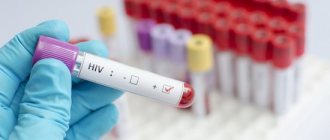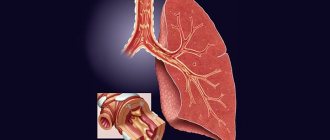Oncologist deals with the diagnosis and treatment of benign and malignant neoplasms.
Most malignant pathologies are curable in the early stages.
By contacting an oncologist in a timely manner, you significantly increase the chances of timely diagnosis of cancer, and therefore of successful therapy.
At our clinic, you can get a qualified consultation with an oncologist, undergo a comprehensive diagnosis, and check for a genetic predisposition to cancer.
Consultation with an oncomammologist
A breast oncologist specializes in malignant tumors of the mammary glands. During the appointment, the doctor examines and palpates (feels) the breasts, trying to identify lumps in them, asks the woman at what age she had her first period, how regular they are now, whether there have been pregnancies, abortions, whether she has given birth. Usually, “bad” screening test results force you to contact this doctor. For early diagnosis of breast cancer, women under 40 years of age are recommended to undergo an annual ultrasound, and at older ages - mammography (x-ray of the mammary glands). If you have not undergone any of these studies, your doctor will definitely refer you to them.
In order to figure out whether the pathological formation found in the breast is cancer, the oncologist will refer you for a biopsy. During this procedure, a needle is inserted into the breast under local anesthesia, some tissue is removed from the lump and sent to the laboratory for examination under a microscope.
Diagnostic methods
To determine cancer, the following methods are used:
- Laboratory diagnostics . Identifies tumor markers - substances that produce tumors.
- Cytology and histology . Examination of tumor tissue samples under a microscope.
- Endoscope examinations . The internal cavities of the gastrointestinal tract and other hollow organs are examined.
- Ultrasound (ultrasound examination). It is used for the abdominal organs, pelvis, soft tissues and thyroid gland.
- X-ray studies . Conducted using x-rays. The most common of these is mammography. The location, size and shape of the tumor is determined. Next, a tissue biopsy and cytological examination are performed.
- MRI (magnetic resonance imaging). Used to study the internal structure of tumors.
- PET-CT is a study that detects with high reliability the nature of the tumor, as well as detecting neoplasms and metastases ranging in size from 4-5 mm.
Consultation with an oncodermatologist
Oncodermatologist is a doctor specializing in malignant skin tumors. He is primarily interested in symptoms such as strange formations on the skin (which many patients discover on their own - this is what brings them to see a doctor), itching, pain, burning. Dermatoscopy is performed : the skin is examined under magnification using a special instrument - a dermatoscope . Then, as a rule, the pathological formation is removed and sent for examination.
The European Oncology Clinic uses a modern German PhotoFinder device: it helps to create a “map of moles”, which the doctor can save in the computer. We recommend this study as a screening test for absolutely all people, especially lovers of solariums, beaches and warm countries. If you undergo it annually, you can detect in time any tiny pathological changes that are invisible to the naked eye. This helps to diagnose cancer early and sometimes save lives.
Is cancer curable?
Despite the persistent belief that no cure for cancer has been invented, many forms of cancer are treatable. For this purpose, a complex has been developed consisting of three areas of treatment:
- Surgical direction - involves mechanical excision of a pathological formation or exposure to it using a non-contact method - laser, electrocoagulation, etc.;
- Chemotherapy - this term in oncology refers to drug treatment with drugs that have a destructive effect on abnormal cells. The danger of chemotherapy lies in the high probability of its harmful effects on healthy tissues of the body;
- Radiation therapy is based on the use of ionizing radiation to slow the growth and division of cancer cells.
The oncology department at the Diana Clinic is a symbiosis of qualified and experienced doctors, modern laboratory facilities and innovative high-tech equipment. Make an appointment with an oncologist today to stay healthy for tomorrow!
If you find an error, please select a piece of text and press Ctrl+Enter
Consultation with a coloproctologist
Coloproctologist is a specialist in diseases of the colon and rectum. Such doctors most often specialize in oncology. During your appointment, your doctor will ask how often you have stools, what their consistency is, whether there is any blood in them, and whether you have any abdominal pain or other bowel-related symptoms. A not very pleasant, but very important component of the examination is a digital examination of the rectum. Based on the results, you may be prescribed a colonoscopy (endoscopic examination of the intestines) and other studies. People over 50 years of age are recommended to have a colonoscopy as a screening test.
Consultation with an oncourologist
An oncourologist is a specialist in the field of malignant tumors of the kidneys, ureters, bladder, and male genital organs. During the consultation, the doctor will most likely ask the following questions:
- How often do you urinate?
- Is your urine color normal? Is there any blood in it?
- How free is your urination? Is the urine stream normal or sluggish?
- Are you bothered by pain in the lower back or pelvis? Is urination painless?
In men, urological oncologists perform a digital examination of the rectum to assess the condition of the prostate. The doctor may prescribe an ultrasound, cystoscopy, biopsy of the bladder and urethra.
Consultation with a gynecological oncologist
Gynecological oncologists are involved in the diagnosis and treatment of female reproductive organs: the body and cervix, ovaries, vagina, vulva. During your appointment, the doctor will ask you:
- At what age did you start your period?
- Are they currently regular? How abundant are they, are they accompanied by pain and other symptoms?
- Have you had any pregnancies, abortions, or given birth to children?
- At what age and how regularly do you have sex?
- Are you bothered by pain in the pelvic area, or is there any pain during sexual intercourse?
- Do you experience unusual vaginal discharge? Do you bleed between periods?
The doctor will definitely conduct an examination on the chair, assess the condition of the cervix, and take smears for cytology. In general, all women need to undergo examinations by a gynecologist at least once a year.
List of cancer diseases
Taking into account the prevalence and incidence of cancer in our time, it is not difficult to imagine how many forms and types cancer can have. It is simply impossible to consider them all in one article, so we can only list the main ones. This includes:
- Leukemias of acute and chronic forms, leading to disruption of hematopoiesis until its complete cessation in combination with suppression of the functions of the immune system.
- Hydatidiform moles in the uterus in women.
- Melanomas are malignant neoplasms of skin pigment cells - moles, spots, etc.
- Lymphogranulomatosis is a tumor in the lymphatic system, which is characterized by rapid spread through the vessels.
- Plasma cell cancer in the bone marrow, intraepithelial cancer.
- Soft tissue sarcomas.
- Neuroendocrine tumors - ovaries, adrenal glands, thyroid, prostate, etc.
- Mediastinal neoplasms appear between the lungs, under the sternum.
- Neoplasms of the central nervous system, which can appear in the nervous tissues of the brain, both spinal and brain, leading to significant impairment of coordination and severe disorders of the nervous system.
- Tumors of the heart and blood vessels.
- Myoma, or fibromyoma, in most cases observed in women of reproductive age in the uterus. A benign condition can remain for a sufficiently long period of time, however, in the absence of qualified and timely treatment, malignancy of the tumor may occur.
Chemotherapy consultation
A chemotherapist is a doctor who determines indications for chemotherapy, targeted therapy, hormonal therapy, immunotherapy, selects optimal combinations of drugs, and accompanying therapy that helps to endure treatment comfortably and prevent side effects.
There are international protocols that prescribe treatment standards for different stages and types of cancer, however, the doctor must always work with the patient individually, taking into account the characteristics of cancer in a particular case, general health, concomitant diseases, and other points. It is important for the chemotherapist to study the results of a general, biochemical blood test.
During your consultation, it is worth asking your chemotherapy doctor what the purpose of the treatment will be. Sometimes chemotherapy drugs are prescribed to reduce the size of the tumor before surgery and to prevent relapses after surgery. Chemotherapy can be palliative: with the help of drugs, the doctor seeks to slow down the progression of cancer and prolong the patient’s life, but not to achieve remission. It is important for the patient to understand what results can be expected from treatment, what side effects may be, how to deal with them, and in which cases you need to consult a doctor. If you plan to use any dietary supplements, herbal medicines, vitamins, be sure to tell your doctor about this, all this can affect the effectiveness of chemotherapy.
General information
Oncology is a broad branch of medicine that studies neoplasms (tumors) of various origins, patterns of their occurrence and mechanisms of development, methods of their diagnosis, treatment and prevention.
Oncological diseases include heterogeneous tumors that develop from a specific type of tissue. These are systemic diseases, since the development of the tumor process in one way or another affects all human systems and organs.
The atypical cancer cells that make up malignant tumors differ in:
- impaired ability to form a certain phenotype, which causes disruption of the tissue structure at the site of the tumor;
- accelerated reproduction and the ability to exist almost forever, which leads to aggressive tumor growth (ordinary cells of the body die after several divisions);
- the ability to spread through the blood or lymph flow (to form metastases).
Oncological diseases are not a death sentence - according to modern research, cancer cells appear in isolated quantities in healthy people, but are successfully destroyed by the body's immune system. An oncological process detected at an early stage in most cases guarantees long-term remission or complete cure.
Consultation with an oncologist-surgeon
The oncologist decides whether to perform an operation, what kind of operation, and to what extent. To do this, he studies research data, takes into account the stage of cancer, tumor size, the presence, number and size of metastases, the general condition of the patient, and the risks associated with surgery and anesthesia.
The goals of operations vary. During radical surgery, the tumor is completely removed; during cytoreductive surgery, they try to remove as much of it as possible. Palliative interventions help relieve symptoms. Ask your doctor to tell you what results you can expect in your case and how likely it is that you will be able to completely get rid of the tumor.
Active patient participation
For many years, medicine was dominated by the principle that “the doctor is always right.” Nowadays the approach has changed. The oncologist makes decisions together with the patient. The patient must know the purpose of this or that procedure, what the result will be, what is the likelihood that it will help, and what alternatives are available. During the consultation, you need to not only talk about your complaints, but also ask questions and listen carefully. This will help you understand what is happening to you and what your prospects are, and make informed decisions. You can take your loved ones to the reception.
Such “cooperation” does not at all undermine the doctor’s authority. On the contrary, everyone benefits from it. The effectiveness of treatment and patient satisfaction with the results increases.
In some cases, it is worth getting a second opinion: if you doubt that you have been diagnosed correctly and the optimal treatment has been prescribed, if the doctor does nothing for a long time, if he says that there is nothing more he can do. In any doubtful case, it would not be superfluous to consult another specialist. Patients regularly seek a second opinion from doctors at the European Oncology Clinic. In difficult cases, we ourselves consult with foreign colleagues and recommend clinics abroad to the patient.
Research the doctor's education and experience
Obviously, the doctor must have a higher specialized education, so it is necessary to look not only at its presence, but also at the university from which the oncologist graduated, as well as advanced training courses. You can focus both on the rating of higher educational institutions on the website of the federal portal of Russian education, and, for example, on the Forbes rating, which included the First Moscow State Medical University named after. THEM. Sechenov, Northwestern State Medical University named after. I.I. Mechnikov, Siberian State Medical University and 10 other medical universities.
Look at the doctor's qualifications, as they indicate the specialist's experience. There are 3 categories in total:
- second category. Received by doctors after 3 years of work in their specialty, providing a report on the work done and passing special testing;
- first category. Received after 7 years of experience and passing the certification commission;
- highest category. Received after 10 years of experience and an interview-survey of the certified person on the theory and practice that he must know in accordance with the requested qualification.
Be sure to look at which medical institutions the doctor completed his internship and worked in before, since it is important not only and not so much the number of years worked, but the clinics in which the oncologist worked.
How to prepare for a consultation?
When planning an appointment with an oncologist, you need to prepare:
- Collect all the documents that you have on hand: certificates, extracts, medical records, results of tests and studies, pictures.
- Write down in a notebook all the information you want to tell the doctor, all your symptoms.
- Prepare a list of questions you want to ask the doctor.
- If you are afraid that you will not remember what the doctor says, take someone close to you with you to the appointment.
“Why do I need consultations with an oncologist if I have already undergone treatment and am in remission?”
After remission there is always a risk of relapse. Cancer can come back, and if this happens, it is important to find out about it in time and not waste time. Therefore, after discharge, the patient is prescribed regular follow-up examinations and examinations - their scope depends on the type and stage of cancer. At first you will have to visit the doctor quite often, then the visits will become less frequent. Sometimes the side effects of treatment persist for a very long time: the oncologist will tell you how to deal with them and give recommendations on lifestyle.
The same applies to people who were examined and the diagnosis was not confirmed. If the tumor turns out to be benign, this is good, but the risk of cancer still remains. Nobody cancels screening.
Be attentive to your health and consult a doctor on time. You cannot protect yourself from cancer one hundred percent, but you can detect it in time and begin treatment - this greatly increases the chances of successfully fighting the disease. At the European Oncology Clinic you can not only get a doctor’s consultation, but also undergo the necessary examination.
Book a consultation 24 hours a day
+7+7+78
Conditions for successful therapy
To effectively cure cancer, it is important to detect it as early as possible and turn not to charlatans and healers, but to an experienced oncologist. It is also worth noting that the psychological attitude of the patient himself is important. If a person is determined to fight, the chances of recovery increase significantly.
It should be remembered that cancer is not a death sentence. This is confirmed by millions of people who have gone through this disease and overcome it.
Consultation with an oncologist in Moscow and other cities and towns of Russia is quite accessible to everyone. Do not neglect your health, seek medical help in a timely manner!











